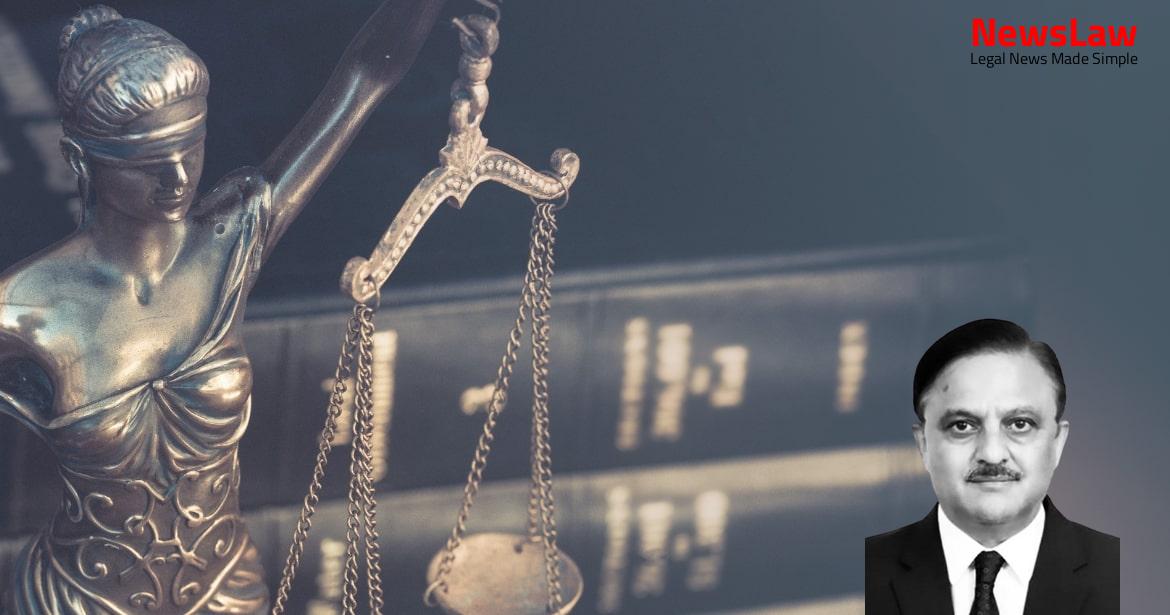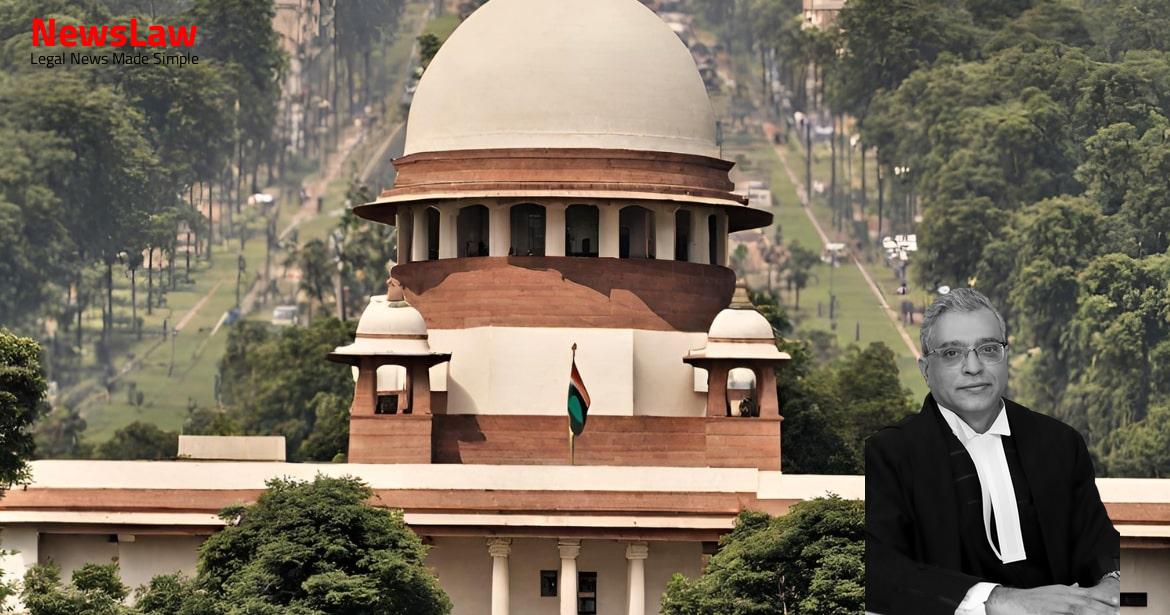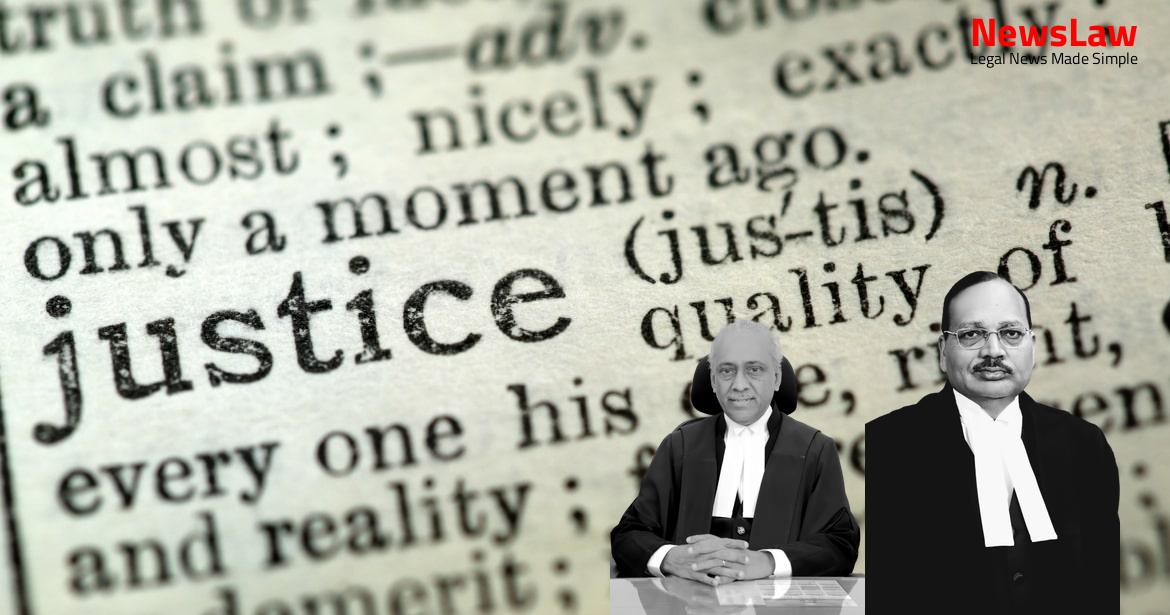In a significant legal development, the Supreme Court of India has delivered a landmark judgement in the case of Madhya Pradesh Rural Road Development Authority vs. L. G. Chaudhary Engineers and Contractors. This judgement has far-reaching implications in the realm of arbitration law and its applicability to contractual disputes. Stay informed about this crucial decision by the apex court as it sets a new precedent in the Indian legal landscape.
Facts
- Appellant filed a petition under Section 11(6) of the Arbitration Act before the High Court of Madhya Pradesh at Jabalpur.
- The respondents challenged the award by filing a petition under Section 34 of the Arbitration Act before the District Judge, Jabalpur, which was later dismissed.
- A retired District Judge was appointed as the Arbitrator after the initial petition was dismissed.
- An award was made by the Arbitrator on April 25, 2014.
- Appellant applied for a reference to the Madhya Pradesh Arbitration Tribunal, Bhopal, in accordance with the 1983 Act.
- The contract was granted by the State of Madhya Pradesh to the appellant for constructing a minor bridge.
- Appellant’s request for constitution of an Arbitral Board was rejected by the Executive Engineer, National Highway Division Sagar, Madhya Pradesh, who also rescinded the contract.
- Clause 29 in the work order contained the arbitration clause.
- The Arbitration Tribunal concluded that the Arbitration and Conciliation Act, 1996 would apply due to an arbitration clause in the contract.
- The respondents appealed under Section 37 of the Arbitration Act before the High Court to challenge the District Court’s order.
- The High Court set aside the award based on the argument that the provisions of the 1983 Act applied, citing the Madhya Pradesh Rural Road Development Authority & Anr. v. L. G. Chaudhary Engineers and Contractors case.
- The Tribunal clarified that the 1983 Act would only apply in the absence of an arbitration clause in the contract.
Also Read: Judgment on Bail Grant in Society Funds Misappropriation Case Involving Original Name
Arguments
- The appellant’s counsel argued that the award could not be set aside based on the decision of the Court.
- Respondents did not contest the High Court’s order under Section 11(6) of the Arbitration Act.
- Jurisdiction objection was raised only in written submissions, not earlier.
- Counsel for the appellant highlighted that the Madhya Pradesh Rural Road Development Authority case was decided four years after the award.
- Court noted in paragraph 17 of the decision that if jurisdiction objection was not raised at the appropriate time, the award may not be annulled solely on that ground.
- The learned counsel for the respondents argued that the written statement before the Arbitrator raised a contention that the appellant should have taken recourse to Section 7 of the 1983 Act.
Also Read: Acquittal of Accused in NDPS Case: Key Legal Points
Analysis
- The appellant had initially invoked Section 7 of the 1983 Act before approaching the Arbitration Tribunal.
- The respondents’ opposition was based on the merits of the claim rather than on jurisdiction grounds.
- Section 16(1) of the Arbitration Act was not invoked by the respondents to challenge jurisdiction before the learned Arbitrator.
- The decision in the case of Madhya Pradesh Rural Road Development Authority highlighted the applicability of the 1983 Act despite an arbitration clause.
- The Arbitration Tribunal ruled that the Arbitration Act would apply, prompting the appellant to file a petition under Section 11(6) without objections on the 1983 Act’s applicability.
- The written statement before the Arbitrator did raise the issue of the 1983 Act’s applicability, but the Tribunal concluded that the Arbitration Act would govern the dispute.
- The appellant subsequently sought the High Court’s intervention under Section 11(6) of the Arbitration Act for the appointment of an Arbitrator.
- Paragraph 17 of the judgment was cited.
- The Court’s ruling from paragraph 17 was quoted.
- The specific holding from paragraph 17 was outlined.
- The observations in paragraph 17 of the decision in the case of Madhya Pradesh Rural Road Development Authority are not applicable in this case.
- Jurisdiction under Article 142 of the Constitution of India can be exercised to ensure complete justice.
- The award was set aside only based on the ground that the appellant should have invoked the provisions of the 1983 Act.
- The appellant had indeed taken recourse to the 1983 Act before seeking the appointment of an Arbitrator.
Also Read: State of West Bengal vs. Accused: Upholding Justice for Victims
Decision
- The High Court, while deciding the appeal, will pass appropriate directions regarding the withdrawal of the amount with interest accrued thereon.
- All issues on the merits of the restored appeal under Section 37 of the Arbitration Act are kept open.
- Arbitration Appeal no.45 of 2019 is restored to the file of the High Court of Madhya Pradesh, Principal Seat at Jabalpur.
- The impugned judgment dated 12 May 2022 passed in Review Petition no.584 of 2021 and the order dated 5 July 2021 passed in the Arbitration Appeal no.45 of 2019 are set aside.
- The amount will be invested by the High Court in a fixed deposit with any nationalised bank until the disposal of the restored appeal.
- The restored appeal will be listed before the roster bench on Monday, the 30 September 2024.
- The Registry will forward a copy of this judgment to the Registrar (Judicial) of the High Court of Madhya Pradesh at Jabalpur.
- On 30 September 2024, the High Court will fix a date for hearing the restored appeal, which will be heard and decided in accordance with law and in light of the observations made in this judgment.
- If the appellant has withdrawn the amount paid as per the award, the same must be deposited by the appellant with the High Court within two months from today.
- The award should not be set aside on the grounds of the applicability of the 1983 Act.
- The parties to the appeal must appear before the High Court on that day, and no further notice of the date fixed in the appeal will be given to the parties.
- Subject to the observations made above, the appeals are allowed.
Case Title: M/S MODERN BUILDERS Vs. THE STATE OF MADHYA PRADESH (2024 INSC 643)
Case Number: C.A. No.-008528-008529 – 2024



